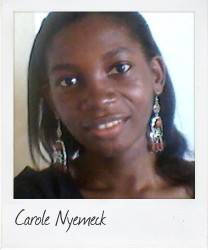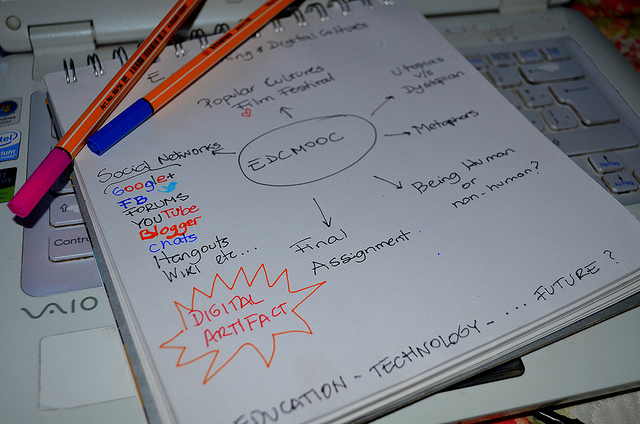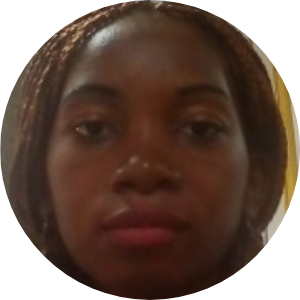"Educating for Africa’s continental renaissance"
October 23 After decades of following European and American education methods, African nations are re-shaping school curriculum, writes Carole Nyemeck, 21, a Correspondent from Yaounde in Cameroon, who says the changes reflect Africa’s unique needs.
After decades of following European and American education methods, African nations are re-shaping school curriculum, writes Carole Nyemeck, 21, a Correspondent from Yaounde in Cameroon, who says the changes reflect Africa’s unique needs.
It has been years since we first heard about pan-Africanism within the spheres of our African continent. It was then thought to be the driving force behind the establishment of the United States of Africa and its further development.
However, things have since evolved toward the consolidation of the African Union, but with each country keeping its independence. Thus, we are now seeing how far ahead the African Union is planning the future of the youth, as well as the method it is putting in place in order to build it.
At the time of independence for the vast majority of African countries around 1960, colonization had already bequeathed us a European system of education. In fact, in the case of Cameroon, we had the impact of both the French and Anglo-Saxon styles of education. They implemented a set of subjects and fields of study that matched with the job openings of the industrial revolution. Those were Mathematics, History, Geography, Physics, Chemistry, Science, and Language requirements, and they all focused on theory. It worked well for the period, since the European and American economies were rejoicing in economic booms driven by capitalism, freedom of enterprise and free trade that allowed for innovations in technical and industrial sectors, along with the rise of a bureaucracy style to manage it all.
Unfortunately for African countries, they copied everything they saw in the European educational system, not assuming they were not at the same developmental stage. Indeed, while Europe and America were already industrial societies economically speaking, Africa was still a manual one, with plenty of natural and human resources yet to be developed. They could not afford to outrun steps, but they did it. That somewhat damaged the still fledgling African educational structure, that rather needed to emphasize applied sciences and practical training on agriculture, farming, forestry, oil, mine, arts and crafts, woodwork, reproductive health, as well as good governance, entrepreneurship and human resource management, which all exemplify the vast array of our physical, natural and human potentials.
With the advances made, Africa is now under the reality that they rather needed to adapt education to the practicality of their regional and environmental needs. That is why we are more and more heading towards a professionalism of education. Authorities more than ever see the relevance of using the natural and human resources we are blessed with, through vocational training and skills development. It is in this regard that the African Union commission organized an education summit in Yaoundé, the political capital of Cameroon, in April 2014.
The Sixth Ordinary Session of the Conference of Ministers of Education of the African Union took place for the attainment and even betterment of a quality education towards 2063. The continent was seeking an African renaissance that could ultimately occur through savvy and hands-on education. The challenge was then to stop the kind of study programs we once copied to Europeans, and to use all the leaders, intellectuals, and experts the oldest continent possesses, to come up with our own revitalized programs of study that will focus on professional training. Thus, young people will have the choice to either generate their own employment or access effective ones; in both cases, contributing to the socio-economic development of their continent.
Africa is awakening in the midst of globalization, just to see the ineffectiveness of the same old theoretical fields of study once profitable to the European and American people in the advent of the industrial revolution. Those programs have failed to provide decent jobs to rather brilliant Africans for decades. Hence, the Africans mobilized within their continental union to devise a new educational system more emphasized on vocational training and professional competences.
We thus hope that by 2063, we will be seeing a true revival in our educational systems from primary school to university. Hence, both our public and private African universities will mold charismatic and dynamic world leaders and thinkers who will make significant and even indelible contributions to the world, and ultimately compose our African pantheon!
photo credit: villy21 via photopin cc
…………………………………………………………………………………………………………………
About me: I am a student studying in Yaoundé, the political capital of the country. I am also a member of Cameroonian Student Achievers Club at the Yaoundé US Embassy, and wish to further my education in the United States.
I have always loved the media universe and its components of radio, television, newspapers and internet. However, my first professional encounter with this world came recently, when I began volunteering at Radio Maria Yaoundé.
…………………………………………………………………………………………………………………
Opinions expressed in this article are those of the author and do not necessarily represent the views of the Commonwealth Youth Programme. Articles are published in a spirit of dialogue, respect and understanding. If you disagree, why not submit a response?
To learn more about becoming a Commonwealth Correspondent please visit: http://www.yourcommonwealth.org/submit-articles/commonwealthcorrespondents/
…………………………………………………………………………………………………………………






